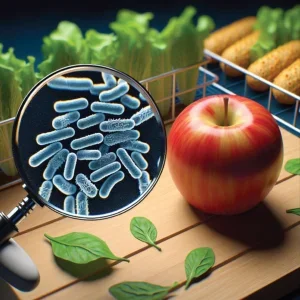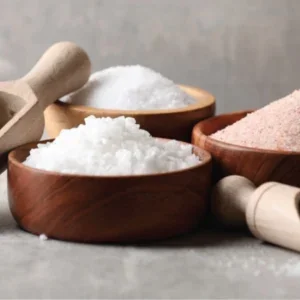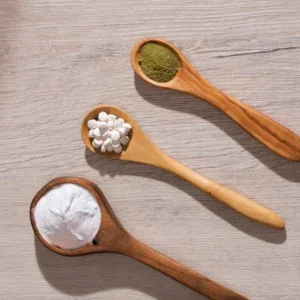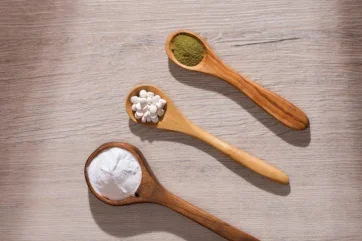
The popular perception of a healthy food product has changed a lot over the years. Not so long ago, supermarket aisles were full of ‘healthy’ low-fat yoghurts (often filled with sugar), or ‘healthy’ low-fat ready meals (often high in salt). Fat was demonised, while ultra-processed, high-sugar substitutes were considered nutritionally sound.
Since then, nutritional wisdom has evolved – and with it, consumers’ purchasing preferences. These days, health-conscious consumers are far more interested in ‘natural’ produce. They also care more about cutting sugar than cutting fat. According to Mintel, the top three factors people look for in healthy food currently stand as ‘low sugar content’ (31%), ‘contributes to five-a-day’ (24%) and ‘low fat’ (24%). The latter has dipped eight percentage points since 2018, with low-fat dairy products especially experiencing a slump in sales.
Curbing sweet teeth
Sugar reduction, on the other hand, remains a cornerstone of a healthy lifestyle. According to the International Food Information Council’s 2024 Food and Health Survey, 76% of Americans are trying to avoid sugar or limit their sugar consumption (up from 72% in 2023). More and more low-sugar products are hitting the shelves, with this segment of the market growing faster than higher sugar alternatives. “Consumers in most markets are seeking out reduced sugar or no added sugar foods and drinks that still meet their preference for sweet taste and exceptional mouthfeel,” comments Cathy Doucette, vice president of research and development at Tate & Lyle.
Tate & Lyle knows this trend better than most. Originally a sugar refiner, the company divested its sugar business in 2010 and has subsequently focused on healthy, functional ingredients for food and beverage manufacturers. That includes sweeteners and fibre additives. The company says that, through selling these additives, it has been able to expunge nine million tonnes of sugar from people’s diets (equivalent to 36 million calories) over the past five years.
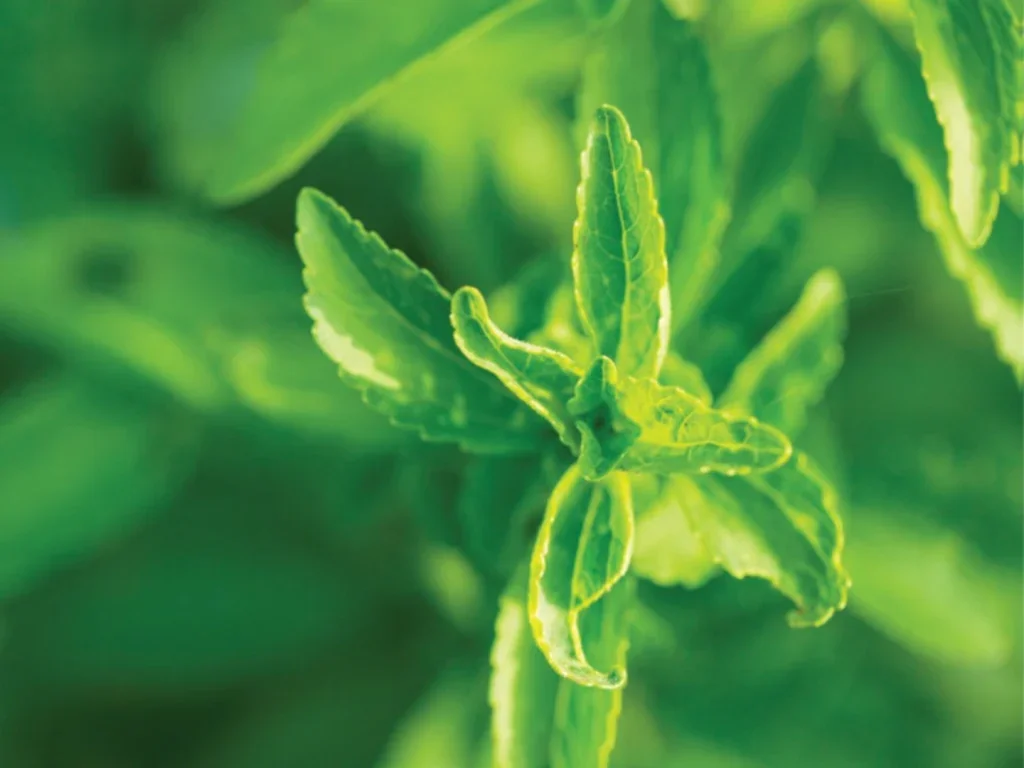
And its sugar reduction business continues to go from strength to strength. In December 2024, Tate & Lyle announced it was partnering with Canadian biotech BioHarvest Sciences to “develop the next generation of sweeteners” – plantderived molecules that are sustainable, nutritious and attractively priced.
These sweeteners will be created using BioHarvest’s proprietary Botanical Synthesis platform, which is capable of growing targeted plant cells without having to grow the plant itself. Although it may sound far-flung, the idea behind this technology is simple – plants contain a repository of useful compounds, which are suitable for all kinds of human needs. The problem is that nature can be inefficient. It doesn’t provide these compounds in the kind of concentrations that are needed for industrial use.
BioHarvest takes the plant once, isolates the cells that produce key active ingredients, and then grows these cells in bioreactors with a view to increasing their output. While it might take two years to produce a crop the traditional way, BioHarvest can generate its ‘harvest’ within a matter of weeks. The partnership with Tate & Lyle represents a major milestone for the company, which has spent more than 15 years developing its technology.
“Botanical synthesis is a technology that replicates and improves nature’s process at scale,” explains Ilan Sobel, CEO at BioHarvest. “It delivers new patentable molecules by growing plant cells which can mirror and magnify the phytonutrients contained in specific targeted plants.”
For the purposes of this partnership, Tate & Lyle will use the BioHarvest platform to develop botanical sweetening ingredients. The company says the ingredients will meet consumer desire for sugar-like flavours, without the unpleasant aftertaste that characterises many sweeteners. “Ultimately, how a food or drink tastes remains the primary purchase driver, over health or other considerations,” Doucette remarks.
Turning to nature
Of course, this isn’t the first time a manufacturer has looked towards nature for new sweeteners. Just take stevia, which is derived from the leaves of an herbal shrub, or thaumatin, from the West African katemfe fruit. Just recently, German researchers announced they were developing a protein-based sweetener, 10,000 times sweeter than sugar, from the African plant Pentadiplandra brazzeana. (They will be genetically modifying the protein sequence and manufacturing it through biotechnology tools.)
BioHarvest, however, is doing something novel. They will be the first to commercialise a plant-based sweetener molecule without relying on traditionally grown plants or resorting to genetic modification.
“Our molecules will be different because they are produced in bioreactors that utilise a fraction of land and water compared to traditional agriculture, without the use of solvents, insecticides or fungicides,” says Sobel. “In addition, the compositions will be both novel and proprietary, given our ability to magnify specific targeted molecules in the original plant to optimise sensory performance.”
The upshot is that the molecules will be cheaper and more sustainable than ingredients produced via traditional methods. As Doucette explains, Tate & Lyle is constantly aiming to evolve its sugar reduction solutions to meet emerging public health challenges. “It’s not just about people’s health, but about the health of the planet, too,” she points out. “Global food systems are under increasing pressure, and this technology offers a scalable solution to meet future nutritional demands more sustainably.”
According to Action on Sugar, a UK-based advocacy group, the UK population consumes twoand- a-half times the amount of sugar needed to meet the maximum recommended daily intake. As well as driving tooth decay and a host of chronic ailments – including obesity and type 2 diabetes – this is causing untold environmental damage. Currently, the UK uses around 100,000 hectares of prime agricultural land to grow sugar beet, which is leading to topsoil damage and biodiversity loss.
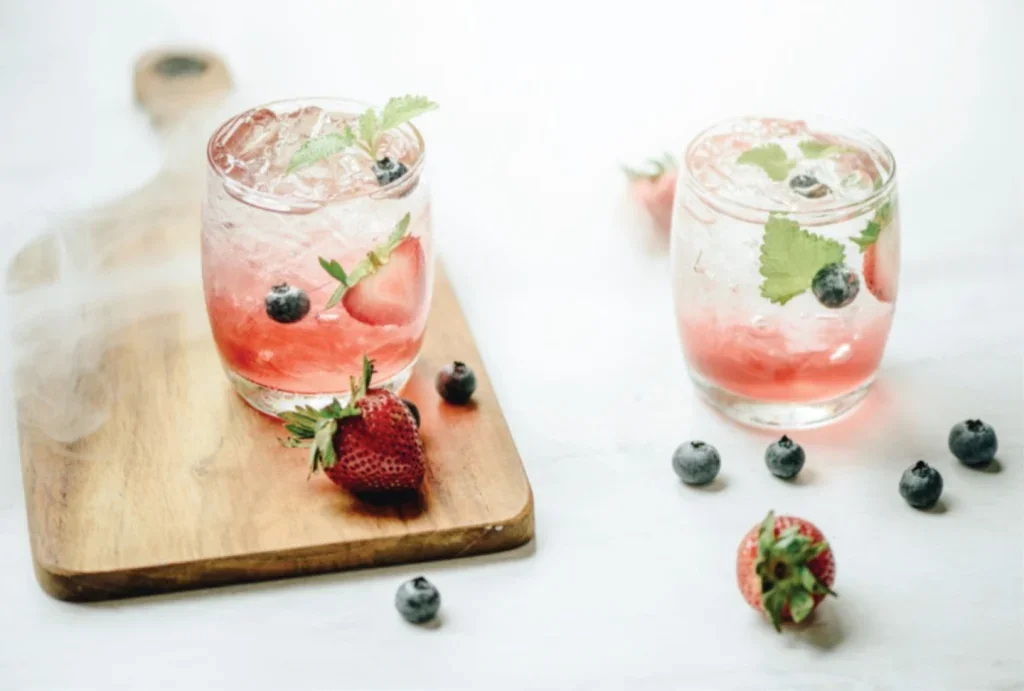
It’s a similar story elsewhere in the world. Added sugar now makes up about 8% of the average person’s calories – four times the figure from 60 years ago – and the consequences are stark. One study found that, if added sugar were reduced to 5% of daily calories, 483 million tonnes of sugarcane would be freed up around the world, meaning that the land could be repurposed for more pressing needs. Another study calculated that a 20% reduction in Americans’ sugar consumption would save the US more than $10bn in direct medical costs by 2035.
Solutions to sugary problems
Plant-based sweeteners, like the ones being developed by Tate & Lyle and BioHarvest, could prove to be an important part of the solution. “Most countries and health systems recognise the urgent need to reduce calories from sugar, a major source of calories for many,” comments Doucette. “By replacing sugars in foods and beverages, low and no-calorie sweeteners help decrease the energy density of food and drink, which, in turn, can also go on to mean significant reduction in calorie consumption.”
The partnership stems from Tate & Lyle’s ongoing Open Innovation programme, which welcomes proposals from anyone with a good idea. From the innovator’s perspective, this brings scope to dramatically scale up their technology. Tate & Lyle has years of ingredients research to its credit, along with a global customer base and the ability to navigate complex regulatory landscapes. From Tate & Lyle’s perspective, meanwhile, it means accessing some of the most enterprising minds in the business.
“Our Open Innovation programme is committed to creating cutting-edge solutions,” says Doucette. “We seek to offer the latest technological innovation to our food and drink customers, to enable our purpose of Transforming Lives through the Science of Food. By partnering with entrepreneurial innovators like BioHarvest, we aim to disrupt the future of food for the better.”
In this case, the two companies are united by a shared goal: to develop accessible ingredients that are better for people and the planet. Their collaboration will have many facets, with the two working together on technical, regulatory, marketing and economic aspects. They want to ensure that their new offerings have the right kind of sensory profile, cost point and label, with a view to appealing to discerning customers in the food and beverage business.
“Our initial focus is on tissue culture work, which involves assessing the plants used as a raw material in the creation of Tate & Lyle’s low and no calorie sweeteners,” says Sobel. “We want to replicate the molecules that are extracted for these ingredients so we can, ultimately, replicate them at scale without the need for equivalent fields of these crops.”
He expects to see the first tangible results within the first year of the partnership and looks forward to sharing updates. And while the initial work will focus on Tate & Lyle’s sweeteners’ platform, the partnership may provide for expansion into other areas further down the line.
“As a leader in the sweeteners market, we continue to evolve our sugar reduction toolkit to meet every consumer need and preference,” says Doucette. “We support industry formulators to develop exceptional food and drinks that people enjoy and which support balanced nutrition. This partnership with BioHarvest will enable us to accelerate innovation through the latest science.”



